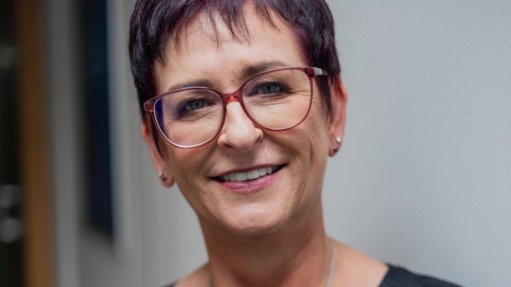Costly blackouts
Africa’s despots – and they are numerous – are increasingly developing a worrying penchant for switching off social media networks to prevent citizens from sharing information they dislike or when they feel such exchanges may threaten their hold on power.
The latest to resort to this trick was former Zambian President Edgar Lungu, who, when he sensed that he and his party were headed for a crushing defeat in last month’s general elections, ordered Internet service providers to restrict access to Twitter, Facebook, Instagram and messaging apps Messenger and WhatsApp. It took a High Court order for the telecoms regulator in the country to lift the restrictions.
Other dictators with a history of similar violations of citizens’ right to information include those at the helm in Algeria, Burundi, Ethiopia, Guinea, Mali, Sudan, Tanzania, Togo and Zimbabwe. A newcomer to the game is eSwatini’s King Mswati III, who ordered Internet service providers to suspend social media and other online services “until further notice”. That was in June, at the height of the now- subdued antimonarchy protests in the country.
One could add Nigeria’s Muhammadu Buhari to the list. But he is an outlier from the rest in that the ban he imposed in June was not aimed at stifling dissenting voices and was not generic, targeting Twitter only.
Buhari’s was a tit-for-tat move after Twitter suspended his account for what was perceived to be a threat of genocide against rebels. He had tweeted: “Many of those misbehaving today are too young to be aware of the destruction and loss of lives that occurred during the Nigerian Civil War. Those of us in the fields for 30 months, who went through the war, will treat them in the language they understand.”
This rant was prompted by a wave of attacks on police stations, government buildings and electoral offices in south-east Nigeria, the Igbo-speaking region that attempted to secede in 1967 but was thwarted by federal government troops in a three-year civil war that claimed about one-million lives.
Internet shutdowns deprive citizens of their freedom of expression and are not good for democracy. But they also impose a financial cost on economies. Let’s take the Twitter ban in Nigeria, for example. Using a tool developed by Internet governance watchdog Netblocks and America’s Internet Society, British company Top10VPN has calculated that the ongoing ban cost the Nigerian economy $366.9-million during the two months from its imposition on June 5 to early August.
Surely, the Nigerian authorities should have foreseen that, since Nigeria is among Africa’s best-performing countries in attracting investments in technology startup businesses, a ban on a technology service would have a particularly outsized effect on an already struggling economy. Nigerian startups – as well as other businesses, such as banks – use Twitter for advertising, customer service and conflict resolution, among other activities.
According to Top10VPN’s calculations, so far this year, only Myanmar and India have incurred bigger financial losses than Nigeria. The Myanmar disruption, which was imposed in February – when a military junta seized power – and has been in effect ever since, save for a hiatus from April 7 to April 28, has cost an estimated $2.5-billion.
Meanwhile, in India, an Internet blackout imposed in late January, at the height of a farmers’ protest over changes to produce pricing regulations, deprived the country’s economy of $368.1-million.
Besides Nigeria, other African countries whose economies have been hard-hit by Internet bans this year are Uganda and eSwatini. The ban imposed by the former on the eve of elections in January remained in place for 100 hours and cost the country $51.5-million, with the most affected being those in the informal sector, who are heavily dependent on mobile money apps. The economic toll in eSwatini has been estimated at $15.8-million.
Article Enquiry
Email Article
Save Article
Feedback
To advertise email advertising@creamermedia.co.za or click here
Comments
Announcements
What's On
Subscribe to improve your user experience...
Option 1 (equivalent of R125 a month):
Receive a weekly copy of Creamer Media's Engineering News & Mining Weekly magazine
(print copy for those in South Africa and e-magazine for those outside of South Africa)
Receive daily email newsletters
Access to full search results
Access archive of magazine back copies
Access to Projects in Progress
Access to ONE Research Report of your choice in PDF format
Option 2 (equivalent of R375 a month):
All benefits from Option 1
PLUS
Access to Creamer Media's Research Channel Africa for ALL Research Reports, in PDF format, on various industrial and mining sectors
including Electricity; Water; Energy Transition; Hydrogen; Roads, Rail and Ports; Coal; Gold; Platinum; Battery Metals; etc.
Already a subscriber?
Forgotten your password?
Receive weekly copy of Creamer Media's Engineering News & Mining Weekly magazine (print copy for those in South Africa and e-magazine for those outside of South Africa)
➕
Recieve daily email newsletters
➕
Access to full search results
➕
Access archive of magazine back copies
➕
Access to Projects in Progress
➕
Access to ONE Research Report of your choice in PDF format
RESEARCH CHANNEL AFRICA
R4500 (equivalent of R375 a month)
SUBSCRIBEAll benefits from Option 1
➕
Access to Creamer Media's Research Channel Africa for ALL Research Reports on various industrial and mining sectors, in PDF format, including on:
Electricity
➕
Water
➕
Energy Transition
➕
Hydrogen
➕
Roads, Rail and Ports
➕
Coal
➕
Gold
➕
Platinum
➕
Battery Metals
➕
etc.
Receive all benefits from Option 1 or Option 2 delivered to numerous people at your company
➕
Multiple User names and Passwords for simultaneous log-ins
➕
Intranet integration access to all in your organisation

















